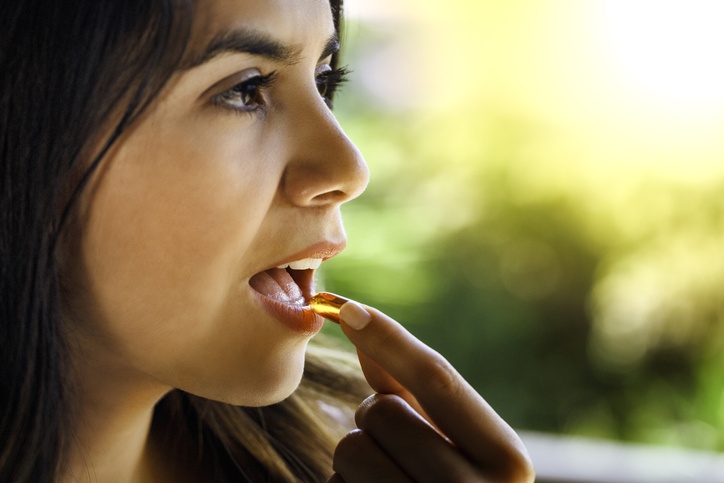Vitamin D, known as the “sunshine vitamin”, is crucial for our bodies. But how to get it if we are avoiding the sun and protecting our skins? Here’s what you should know:
We know that vitamins are crucial for skin health, as well as our overall wellbeing. But one vitamin that is often a standout choice, yet often overlooked, is vitamin D.
If you are looking for a supplement that can make a significant difference in at least 15 medical conditions, vitamin D is a fantastic choice.
Vitamin D helps us to absorb minerals such as calcium, iron, magnesium, phosphate and zinc better, which leads to healthy, strong bones,muscles and a strong immune system.
What happens when we run low on vitamin D?
Vitamin D helps the whole body to function better, and a deficiency could be associated with several symptoms such as:
- Mood disorders such as depression or schizophrenia
- Increased infection risks such as urinary tract infections or tuberculosis
- Inflammatory changes such as asthma, coronary artery disease and high blood pressure
- Adult onset diabetes mellitus and metabolic syndrome
- Autoimmune disorders such as multiple sclerosis, Crohn’s disease or rheumatoid arthritis
- Increased cancer risks such as breast, colon, prostate and pancreas cancers. A recent study in the European Journal of Endocrinology demonstrated lower levels of metastatic cancer when patients had high levels of Vitamin D3.
- Osteomalacia and osteoporosis
Why is it called the “sunshine vitamin”?
Vitamin D3 or cholecalciferol is known as “the sunshine vitamin” and should be distinguished from vitamin D2, also known as ergocalciferol.
Vitamin D is best obtained through 10 to 15 minutes of daily sun. Unfortunately this comes with a bit of a caveat – remember, the sun also has a potential risk of skin cancer, premature signs of ageing and increased pigmentation.
Sun exposure without ultraviolet-B radiation blockage will produce a natural supply of Vitamin D3. A practical solution is to use sunblock on your hands and face, but expose your arms and legs to the sun for controlled periods of time.
Generally, sunblock only block ultraviolet-B radiation, but ultraviolet-A is the dangerous form of UV rays that can cause melanoma. Therefore, limit sun exposure and never ignore suspicious dark spots anywhere on the body, have them examined by an expert.
However, besides the sun, there are many natural sources of Vitamin D3, including:
- Milk
- Fish
- Eggs
- Mushrooms
How much vitamin D do you need?
The current adequate intake (AI) is 5 microgram per day for both male and female adults, although people over the age of 50 need to take between 10 and 15 microgram per day.
Unlike other vitamins, vitamin D is fat-soluble, meaning it is best absorbed in the presence of fat, it is also stored in fatty tissue and in the liver. Because of this, it increases its toxicity potential and excessive supplementation with blood levels beyond 50 mg/ml, can cause kidney stones as well as calcification elsewhere in the body.
What should you do if you suspect a deficiency?
Are you experiencing any of the above concerns or symptoms? Your vitamin D levels can easily be measured in a blood test and every patient that visits Health Renewal is advised to have one as part of their health assessment. It is always best to consult your Health Renewal doctor for expert medical advice on any supplementation rather than attempting to self-medicate.
Take the quick Beyond Beauty Survey and you could win a R2 000 Skin Renewal voucher to spend in our online store, with free delivery within South Africa. T&Cs apply.
